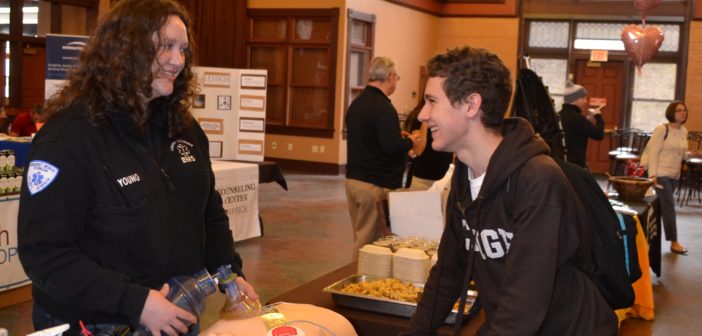The National College Health Assessment was sent to students to assess trends and provide better resources for students’ health behaviors.
According to the email, the aim of the survey is to measure the health and wellness of Lehigh students. With the data received from the survey, the university’s Health Advancement and Prevention Strategies Office is able to compare its findings to prior years and reference national data to see how Lehigh’s health behaviors relate.
The survey, while anonymous, touches on material that may lead to personal discomfort, such as illegal substances, interpersonal violence and sexual behavior.
“Because you’re warned before the survey begins of personal matters, you can just stop,” Lauren Fosbenner, ’19 said. “It’s anonymous, so personal matters aren’t violated.”
About 3,500 randomly selected undergraduate and graduate students received the survey.
According to interim vice provost for Student Affairs and director of Counseling and Psychological Services, Ian Birky, around 17 percent of students typically complete the survey. Birky said he was particularly interested in the new data on students’ sleep pattern, alcohol intake and relationship behaviors.
“It’s helpful in Student Affairs because it helps us put our time and dollars into areas that are the most critical,” Birky said.
Birky said he and his coworkers will continue to look into the effects of alcohol use on sleep and relationships as well as the impact on students’ academic and social performances.
Paul Asadorian, the president of Lehigh’s Peer Health Advisers, said he hoped the results would be a wake up call for students.
“The statistics are important and beneficial to the Lehigh community at large, but it also answers questions to promote conversation,” Asadorian said.
Birky said he is hopeful for a good student response rate, but he is trying to remain realistic about the limited amount of students who will actually want to take the survey. Though Birky said he acknowledges the low response rate in the past, he was also unsure of what would motivate a student to complete the survey in its entirety.
“Are there students who care about these issues of concern and the health of their environment?” Birky said. “If there are, that’s impressive. Or maybe they take it out of curiosity.”
This year, the university has provided incentives to encourage student participation in the survey. Fosbenner said she took the survey a week ago for the prize of free coffee and expects other students may do the same for the rewards offered.
“I just hope it will help identify what the needs of students are so the appropriate resources can be provided by Lehigh,” Fosbenner said.
Students interested in accessing the Lehigh-specific data may do so by completing a request form on the Health Advancement and Prevention Strategies’ website.
Jenna Papaz, the coordinator of the Health and Prevention Strategies Office, said in an email that the Peer Health Advisers’ InSTALLments have also been a useful communication tool to share some of the survey’s findings with students, faculty and staff. Anyone can access the national reference group data by visiting the ACHA-NCHA website.
Papaz said faculty request the data for research, and the data is provided to inform and improve campus task forces about issues such as sexual assault and hazing.
“There’s a lot of benefit to just knowing what goes on on campus,” Asadorian said. “I encourage everyone to take it. The more students, the better.”
Results from the spring 2017 survey will become available in July.
Birky said if students want statistical results from the survey, they can call the Health and Prevention Strategies Department directly and speak to a staff member.






Comment policy
Comments posted to The Brown and White website are reviewed by a moderator before being approved. Incendiary speech or harassing language, including comments targeted at individuals, may be deemed unacceptable and not published. Spam and other soliciting will also be declined.
The Brown and White also reserves the right to not publish entirely anonymous comments.